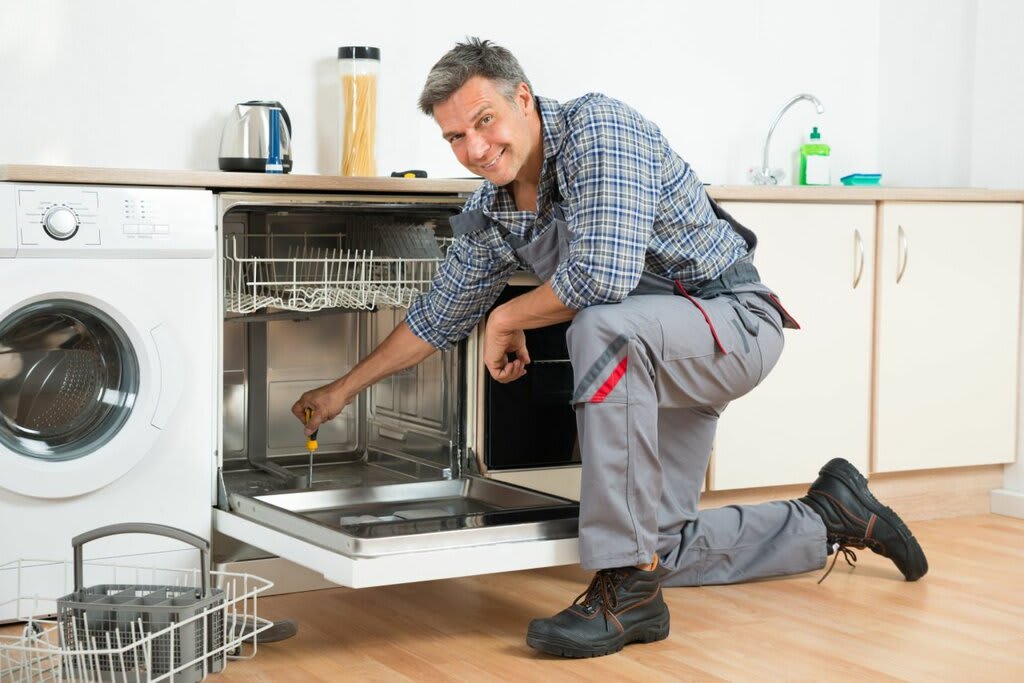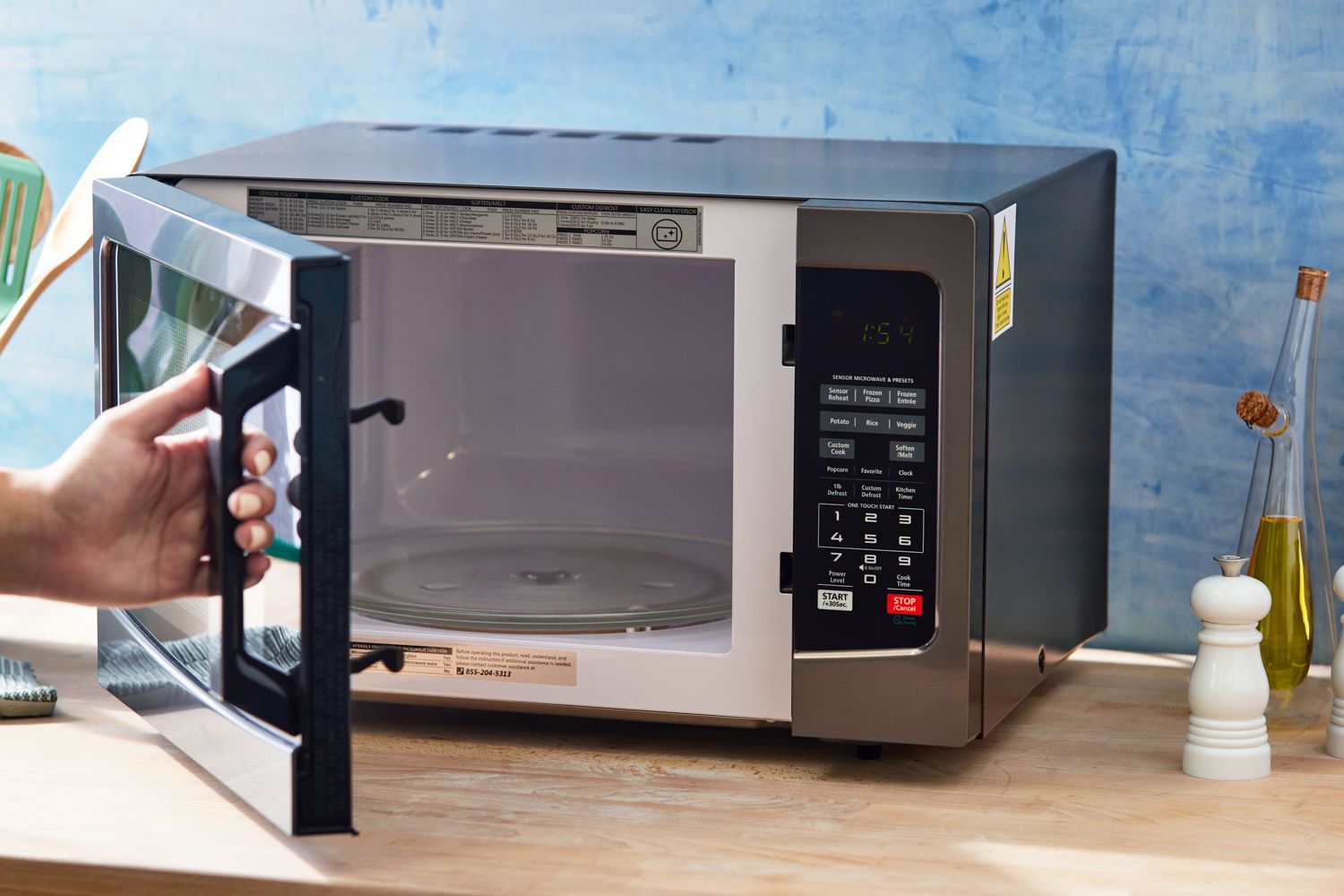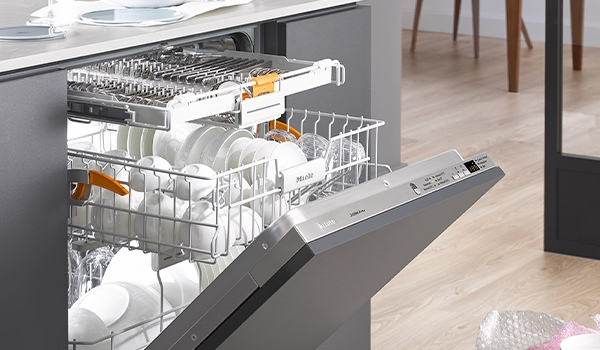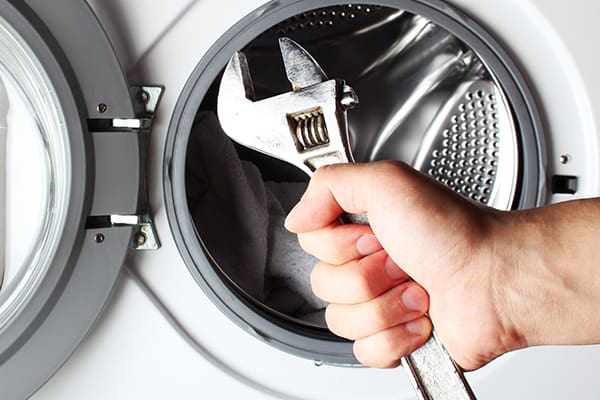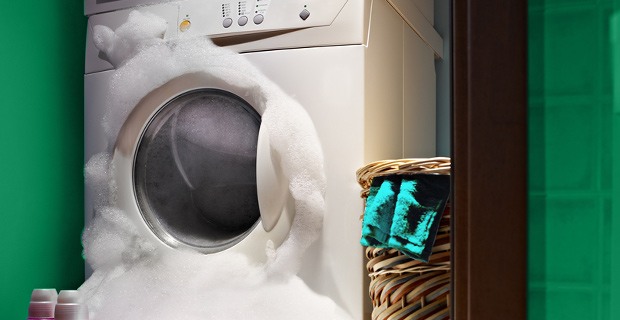When to Call a Professional: Limits of Home Dishwasher Repair
Repairing a dishwasher can often be straightforward, but certain issues warrant the expertise of a professional. Recognizing when to seek professional help can save you time, prevent additional damage, and ensure that your dishwasher operates safely and efficiently. This expanded guide will delve into various scenarios where professional intervention is not just recommended, but necessary.
Persistent Water Leaks
Persistent water leaks in a dishwasher can signify serious issues that require professional attention. Common sources of these leaks include worn-out door seals, loose or damaged hoses, and faulty pump seals. While some minor leaks can be addressed through DIY methods like replacing the door gasket or tightening hose connections, persistent or severe leaks often point to more complex problems.
For instance, a leak originating from beneath the dishwasher could indicate a failure in the pump or the motor seals. These components are crucial for the operation of the dishwasher and are located in areas that are not easily accessible without proper tools and expertise. Attempting to fix such leaks on your own can lead to further damage or even personal injury.
Moreover, leaks can also be caused by a malfunctioning valve or a crack in the dishwasher's tub. These problems not only require professional diagnosis but also specialized replacement parts that are best handled by a technician.
Engaging a professional ensures that the root cause of the leak is accurately identified and resolved, preventing recurrent issues and potential water damage to your home. It also helps maintain the dishwasher’s efficiency and extends its lifespan by addressing any underlying mechanical issues promptly and effectively.
Electrical and Control Issues
Electrical and control issues in dishwashers are not only frustrating but can also pose significant safety risks. These problems may manifest as the dishwasher failing to start, erratic behavior during cycles, or complete unresponsiveness of the control panel. Such symptoms often indicate deeper electrical issues that require professional attention.
One common culprit could be the dishwasher's electronic control board, which governs all its functions. If this board malfunctions, it can disrupt the normal operation of the appliance, leading to symptoms like unexpected stopping or the failure to start cycles. Troubleshooting this involves complex diagnostics and possibly replacing the control board, which is best handled by a qualified technician.
Wiring issues within the dishwasher are another potential cause of electrical problems. Over time, wires can become loose, frayed, or corroded, particularly in older models. Addressing these issues involves inspecting and testing various electrical connections within the appliance—a task that requires specific electrical knowledge and safety precautions to avoid shocks or further damage to the appliance.
Given these complexities, professional repair services are essential. Technicians with the right expertise and tools can safely diagnose and repair electrical and control issues, ensuring the dishwasher operates safely and effectively.
Inadequate Cleaning Performance
When your dishwasher fails to clean dishes properly, it may indicate several underlying issues that go beyond simple fixes. Inadequate cleaning performance can stem from problems with water temperature, water pressure, or malfunctioning components within the appliance. Addressing these issues often requires professional expertise.
One common reason for poor cleaning is a malfunctioning heating element. Dishwashers rely on hot water to effectively break down food and grease. If the water isn't heating to the appropriate temperature, it can leave residue on dishes. A technician can test and, if necessary, replace the heating element to restore functionality.
Another issue could be low water pressure within the dishwasher, which may prevent the spray arms from effectively reaching all areas of the loaded dishes. This could be due to clogged filters or spray arms, or a malfunctioning water inlet valve. While cleaning the filters and spray arms might be within the realm of DIY, diagnosing and repairing or replacing a faulty water inlet valve or pump requires professional skills and tools.
Professional dishwasher repair services can accurately diagnose and resolve these complex issues, ensuring that every cycle leaves your dishes sparkling clean and free from residue. This not only enhances the efficiency of your dishwasher but also extends its operational life.
Unusual Noises During Operation
Unusual noises during dishwasher operation are often indicative of underlying mechanical issues that require professional attention. Common sounds include grinding, buzzing, or thumping, each pointing to different potential problems within the machine.
Grinding noises may suggest issues with the dishwasher's motor or a foreign object trapped in the pump assembly. Objects like small utensils or debris can get lodged in the moving parts of the dishwasher, disrupting normal function and potentially causing damage. A professional can safely dismantle the necessary components to remove obstructions and assess any damage to the motor or pump.
Buzzing sounds are frequently associated with a malfunctioning drain pump or a failing solenoid. These components are crucial for controlling water flow and drainage. Malfunctions here can impede the dishwasher's ability to drain properly, leading to inefficient cleaning and potential water damage.
Thumping noises often arise from spray arm misalignment, causing it to hit against the dishwasher racks or dishes during rotation. While this might seem like a simple fix, consistent misalignment may indicate a problem with the installation or a need for part replacement.
In any case, unusual noises should not be ignored. A professional technician can diagnose the source of the noise, repair the issue, and ensure the dishwasher operates quietly and efficiently again.
Error Codes and System Alerts
Modern dishwashers are equipped with sophisticated diagnostic systems that use error codes and system alerts to indicate specific operational issues. These codes can be invaluable for identifying problems quickly, but understanding and addressing the underlying issues often requires professional expertise.
Error codes may appear on your dishwasher's display panel and can vary depending on the brand and model. Common codes might indicate problems such as water heating failures, drainage issues, or faults with the door latch or sensor systems. While the dishwasher manual may offer basic guidance on what each code means, interpreting and troubleshooting the codes to rectify the problem effectively often goes beyond the scope of typical DIY repairs.
For instance, a heating error code could imply a malfunction in the heating element, thermostat, or associated wiring. Similarly, a drainage error might involve a clog, a faulty drain pump, or a problem with the electronic control system. Each scenario involves different components and troubleshooting steps.
Professional technicians have the tools and knowledge to accurately diagnose the problems indicated by these error codes. They can perform detailed checks, safely access and test various components, and ensure that the appropriate repairs are made, restoring your dishwasher to optimal function swiftly and efficiently.
Chronic Drainage Problems
Chronic drainage problems in dishwashers can be particularly frustrating and may indicate complex issues that require professional repair. These problems typically manifest as water remaining in the dishwasher after a cycle has completed, which can lead to odors, poor cleaning results, and eventually more severe water damage.
Common causes of persistent drainage issues include clogs in the drain hose, malfunctioning drain pumps, or problems with the dishwasher’s control system. While homeowners can often clear simple clogs from the drain hose or filter, recurrent or complex blockages and mechanical failures in the pump require professional intervention.
A professional technician will start by inspecting the dishwasher’s drain hose for kinks or obstructions, ensuring it is properly configured and not elevated above the connection point on the dishwasher, which can prevent water from draining correctly. If the hose and filters are clear, the technician may need to test the drain pump itself. Drain pumps can fail electrically or mechanically, and replacing them involves handling electrical connections and securing the pump correctly to avoid leaks.
Seeking professional help for chronic drainage issues not only resolves the immediate problem but also prevents long-term damage to your dishwasher, ensuring it continues to operate efficiently and effectively.
Age and Overall Condition
The age and overall condition of your dishwasher play a crucial role in deciding whether to continue repairs or consider replacement. As dishwashers age, they may start to show signs of wear that can affect their efficiency and reliability. Understanding these signs and evaluating the overall health of your appliance are essential for making cost-effective decisions.
Dishwashers typically have a lifespan of about 10 years. If your appliance is approaching or has surpassed this age, it may begin to require more frequent repairs. Components like the motor, pump, and control panel may wear out and are often expensive to replace. Additionally, older models may not be as energy-efficient as newer ones, potentially costing more in utility bills.
Professional technicians can perform a comprehensive assessment of your dishwasher's condition. They can check for signs of excessive wear, such as rust on the interior, leaks that could indicate a failing tub, or outdated technology that makes parts hard to find and replace.
Based on this evaluation, a professional can provide recommendations on whether repairs are a worthwhile investment or if replacing your dishwasher with a newer, more efficient model might be more cost-effective in the long run. This advice can help you avoid sinking money into an appliance that will likely require more repairs or will fail soon, ensuring you make the best use of your household budget.


